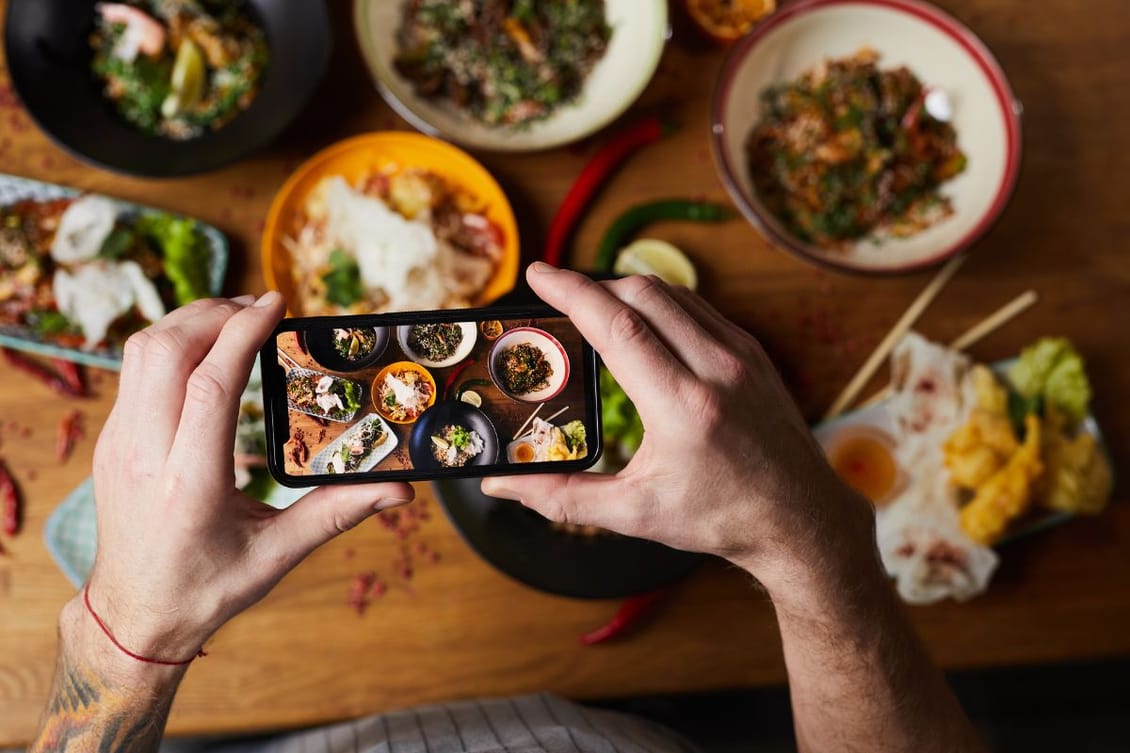
Consumers have never been passive. Marketers have always had to adapt to their needs and build campaigns that will speak to their values – and it’s a symbiotic relationship, with marketing campaigns feeding into cultural shifts.
But today’s consumers are more empowered than ever before. They’re highly informed and discerning, with access to detailed information about products, ingredients, and diet choices; and this leads to educated purchasing decisions. With a focus on transparency and sustainability, they’re also increasingly making those purchase decisions based on a brand’s sustainability practices – and the clarity with which the brand communicates those practices.
They’re also less likely to rely solely on brand content, and instead turn to user-generated content to help them decide if the brand and its products are right for them. People today lean heavily into reviews and ratings to verify the claims that brands make about their products through real, lived experiences.
So what do F&B brands need to do to cater to today’s empowered consumers?
We can’t stress how important this is. Make sure your customers can leave reviews easily – and ideally, reviews that include photos or videos, ratings, and the opportunity for other potential customers to ask them specific questions about their experience.
Brands that effectively and consistently generate UGC can use it to drive traffic and sales, gather valuable consumer insights, and build a strong reputation for being focused on the customer and responsive to their needs.
Right now, all F&B companies have the potential to offer personalisation options to their consumers. With digital tech, even B2B brands can do it – providing buying experiences that are tailored to each client.
Digital marketing tech enables highly targeted messaging, grounded in detailed consumer data. And using augmented reality (AR) and virtual reality (VR) technologies, brands can add new layers to the digital shopping experience; making customers feel more connected and engaged with the brand. For example, you can use AR and VR to create interactive product menus and gamified challenges.
Imagine if, instead of reading a product list, your customers could interact with a 3D visualisation of your products or dishes before they choose to buy.
Then when it comes to actually making a purchase, personalisation options on e-commerce platforms and online ordering systems can enable customers to track their own purchasing patterns with your brand – and allow you to recommend products they’re likely to love.

Food preferences in markets around the world are becoming more and more diverse. And as the internet and social media continue to bridge cultural divides, that diversity will keep growing.
B2C F&B brands today must have the agility to cater to changing tastes, and the bravery to launch new products, flavours, and concepts. There’s a place for tradition, of course, and there’s still a lot to be said for doing one thing – and doing it well.
But customers are seeking out global flavours. They’re interested in new taste blends and novel eating experiences. So consider how your brand can tell a story through taste; are there cultural shifts in your market that you can mirror via the flavours, textures, and dishes you offer?
We’ve said it before and we’ll say it again: sustainability and transparency must go hand-in-hand if you want to succeed in the current market.
That means your sustainability practices have to be genuinely effective. And at the same time, you’ve got to be clear with your customers about what you’re doing, why you’re doing it, and how it’s minimising the environmental footprint of the products they buy from you.
Empowered consumers know about greenwashing. They’re wise to it – and if they suspect a brand is doing it, they’ll reject that brand very quickly.
So honesty is better than false promises. Consumers are more likely to buy from a brand that admits it’s not perfect than one that claims to do everything right, but can’t back those claims up with evidence. Today’s consumers know that sustainability is a journey for all brands, and more than anything else, they want to see that you’re trying – because they’re trying too.
They’ll love your brand more if you give them the information and tools to become even more empowered. So instead of being challenged by the rise of the empowered consumer, become a part of that movement – through transparency, UGC, and tech that gives them the information and choices they want.
Take your seat at the InFlavour table, a government-backed and world-leading B2B food event by Tahaluf.
E-mail address SubmitWant to keep up to date with all our latest news and information? Enter your name below to be added to our mailing list.
E-mail address Submit